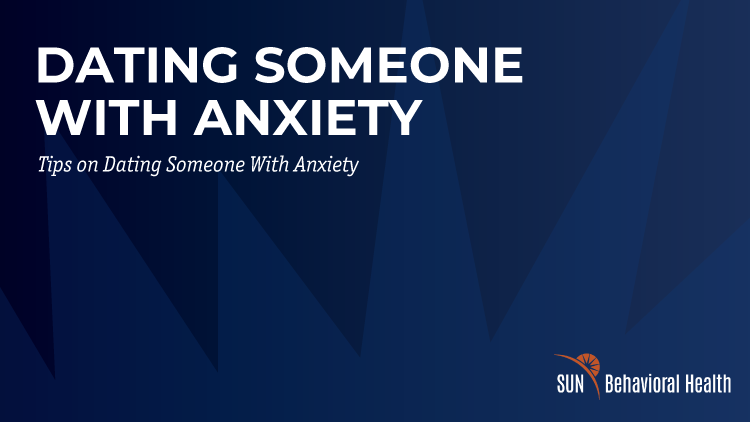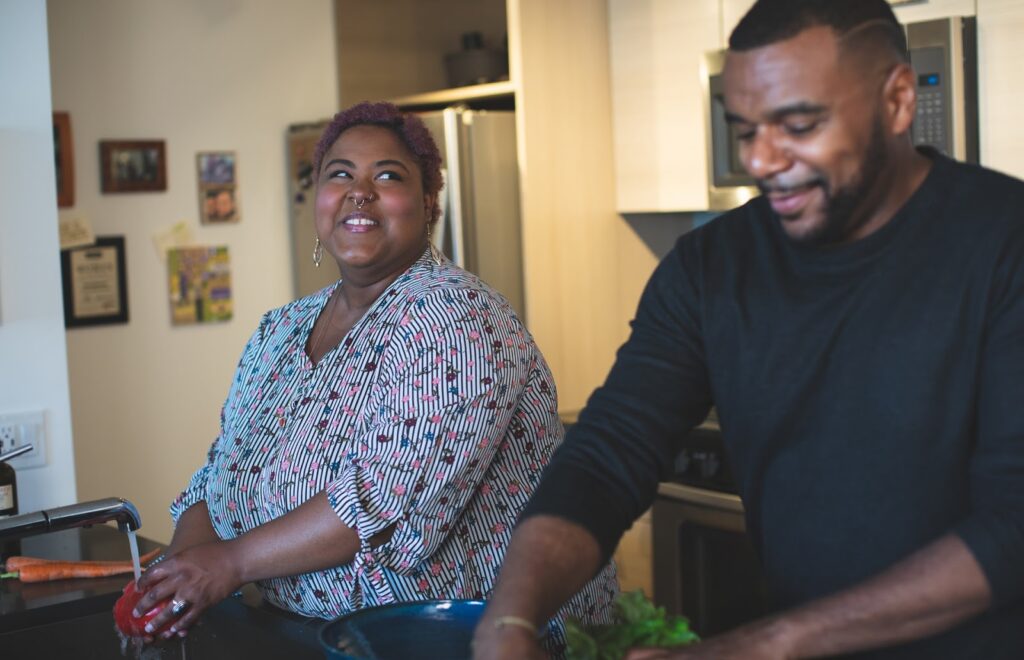Services
- Home
- Mental Health Services
- Who We Treat
- How We Treat
- Patients & Visitors
- About
close

 In any relationship, people need to support each other and communicate well. There will always be challenges to face together; that is the keystone to any relationship. Serious health concerns, financial stress, family loss, child-rearing, job relocation, weight gain, extramarital affairs, fertility issues, addiction. Chances are, one of these will present themselves at some point in your journey together.
In any relationship, people need to support each other and communicate well. There will always be challenges to face together; that is the keystone to any relationship. Serious health concerns, financial stress, family loss, child-rearing, job relocation, weight gain, extramarital affairs, fertility issues, addiction. Chances are, one of these will present themselves at some point in your journey together.
Having an open discussion about one partner’s general anxiety disorder can better position a couple for a healthy relationship and even be helpful when/if more serious situations occur. You have already proven you can rely on each other and have a better understanding of how a good discussion can apply when another situation arises.
Anxiety itself is not harmful or dangerous, according to clinical psychologist Dr. Bethany Teachman, in an ADAA blog article “Why Anxiety Should Not Be Feared.” She points out that avoiding anxiety-causing situations can—ironically—lead to chronic anxiety.
Attending a work conference, going to a party where you haven’t met many people who are expected to attend, or meeting a date’s parents can cause normal nervousness and anxiety. Others are often experiencing the same feelings, which can ultimately be the bond that helps you all relate better and build stronger relationships.
As with all relationships, both people need to feel healthy and supported. The goal may be the same, but both may have different codes of the type of support they need.
So far, your dating experience has gone great with Shane. He greets you with flowers, holds the door, has a great job, and enjoys trivia nights. Who would have thought you would find someone that shared the same quirky passion you’ve always been teased about by your friends?
This weekend he says he wants to talk with you about something important, and you’re guessing he might want to move forward to dating exclusively. You are feeling pretty agreeable to this idea, so you’re looking forward to the hike you two have planned.
But after the hike and conversation, you ask if you can postpone dinner for another night because you want to think about your discussion further—a lot further, you think to yourself.
You have just been told your new love interest has been diagnosed with general anxiety disorder (GAD) and you don’t really know what that means. Questions race through your mind.
Is he okay?
What will this mean for our dating life?
Is this unusual?
Can it be fixed?
Do I still want to date someone who has “issues?”
Here are somewhat flippant answers, but they are helpful to put the situation in context.
Q: Is he okay?
A: Yes.
Q: What will this mean for our dating life?
A: It means you’re starting from a path of honesty.
Q: Is this unusual?
A: Not really.
Q: Can it be fixed?
A: Symptoms can be managed if both parties are aware of the underlying cause.
Q: Do I still want to date someone who has issues?
A: Everybody has something that could be considered an issue, even you. How you handle things is usually more important.
 Let’s take a step back and learn more about Shane’s GAD. Shane, 26, just told Alicia, 27, that he enjoys spending time with her. It’s been a year since his last relationship, which mutually ended after his former girlfriend relocated for a job opportunity.
Let’s take a step back and learn more about Shane’s GAD. Shane, 26, just told Alicia, 27, that he enjoys spending time with her. It’s been a year since his last relationship, which mutually ended after his former girlfriend relocated for a job opportunity.
He wanted her to know he was diagnosed at age 19 with GAD after noticing problems when he attended college away from home. It’s something he feels comfortable managing but felt anybody who he might be in a relationship with should be aware of so issues can be openly discussed.
Alicia listened quietly and told him she appreciated his candor but thought she should take some time, which he understood. They agreed to meet over coffee the following day.
Her first task when she got home was to pour a sweet tea and get busy researching anxiety online. Shane had told her the gist of things and said when she researched not to get mixed up between anxiety and GAD.
According to the Anxiety and Depression Association of America (ADAA), 6.8 million adults, or 3.1% of the United States population, have general anxiety disorder (GAD). It is twice as likely in women. Eighteen percent of the population, or 40 million adults, have GAD or another anxiety disorder, such as panic disorder or post-traumatic stress syndrome.
That means if five people are carpooling to work every day together, chances are one of them has an anxiety disorder. Three people in a room of 100 most likely have GAD.
 GAD is a complex combination of unique symptoms that affect a person physically and psychologically. According to the National Institutes of Health, excessive worry and anxiety, and difficulty controlling them, are present alongside three or more of the following symptoms (at least six months):
GAD is a complex combination of unique symptoms that affect a person physically and psychologically. According to the National Institutes of Health, excessive worry and anxiety, and difficulty controlling them, are present alongside three or more of the following symptoms (at least six months):
There are also many contributing factors to GAD such as personality traits, possible genetic connection, life experiences with trauma aftermath, or loved one or self coping with chronic disease.
 Alicia’s first impressions were how common it is and she naturally started seeing some of the same symptoms in a few friends and a coworker, mentally wondering if they had been diagnosed or were even aware of their symptoms.
Alicia’s first impressions were how common it is and she naturally started seeing some of the same symptoms in a few friends and a coworker, mentally wondering if they had been diagnosed or were even aware of their symptoms.
This research made her pause and think about what Shane must have experienced sharing this part of his life with her. He trusted her to share his health and be vulnerable to her response. Plus, he had already spoken of these management steps and that he has been using them successfully for years.
She picked up the phone, waited for him to answer, and confirmed their date for the next day. Alicia thought she sensed confidence in his response, which was confirmed when he followed it up with “What took you so long?” Laughing, she hung up more intrigued than ever. He was obviously much more than his disorder!
Shane and Alicia were happy to update how their first year of dating had gone so far. Here are some of their lessons learned (some easily, some not so much).
The biggest learning curve, they realized, involved communication. Shane learned he had to speak up for what helped him and what didn’t. For example, Alicia said she started off trying to always fix what was bothering Shane, but he just wanted to work through something and for her to know about it, not to fix it for him.
Similar to communication, it was important for both partners to make sure Alicia understood Shane’s mental health symptoms, and how he personally felt and displayed them typically. He even invited her to a therapy session so she could ask the counselor questions. The counselor also told the couple that Shane’s GAD is only a part of their overall relationship, which would have its own situations they would need to navigate equally together.
A therapist is important for the person with GAD to touch base with regularly regarding the management of their symptoms. Too commonly, due to the proximity to each other and ongoing events, the one with GAD may unload stress and anxiety upon a partner. It is important to realize that having GAD does not excuse behaviors. The partner shouldn’t be expected to soothe their loved one and walk on eggshells for fear they will further disrupt things. This type of codependent cycle between the two can lead to an unhealthy relationship filled with resentment and anger.
When Shane’s mother passed, unfortunately it was followed quickly by another traumatic event in which Alicia had her home burglarized. Either one of these could be challenging for a relationship, but stacked one on top of another was especially trying for Shane.
The fact that Alicia had met his mother and could share fond memories was a way for him to work through his grief. When he became overly anxious about Alicia’s safety, they calmly talked through his recent irritability when she arrived at his apartment. He acknowledged the worry he felt and they came up with a workable plan for her to text him when she was on her way over so he would feel more at ease. Alicia said she worried initially this would spill over into having to always text whenever she was going anywhere, which she wasn’t comfortable with, and Shane readily understood.

Both still love their monthly trivia night outings and have the team name “The Know Nothings.” They are planning an upcoming beach trip with another couple and are excited to go snorkeling. They have shared custody of a rescue mutt named Daisy and enjoy cooking together and watching old movies.
When asked how she felt now about dating someone with GAD, Alicia said it was the healthiest and most communicative relationship she had been in. It is important for everyone, herself included, to know that Shane is much more than a person with GAD, it is just something he happens to have.
If you or someone you love is struggling, the anxiety treatment program at SUN Behavioral Health in Houston can help. Please call us today at 713-796-2273 to help you, your family, and your loved one.
Can Someone With General Anxiety Disorder Be In a Relationship?
Yes, someone who is diagnosed with GAD can be in a relationship. It just means both parties need to be more aware of the additional needs and establish strong communication. One person might have excessive worry they can’t explain, and it is important for the other person to not minimize their symptoms.
Should I Tell My Boyfriend I Have General Anxiety Disorder?
Yes, you should confide your health condition to your boyfriend. It is important to an open, honest relationship. It will also help him understand your responses—which may appear excessive—to situations most might handle with ease, but cause worry, stress, loss of sleep, no appetite, or extreme irritability.
You can share your coping skills and ways he can help you without becoming a part-time therapist, while still keeping your time together on a relationship level.
How Do You Date Somebody With General Anxiety Disorder?
It is important that you come from a place of love, compassion, and understanding. It is equally important that the person with GAD is doing measures provided by a healthcare professional or counselor in order to manage their symptoms. You don’t need to approach it from a place of fixing the problem or minimizing concerns in hopes they go away.
What Is It Like Dating Someone With General Anxiety Disorder?
As in any relationship, you learn the general things that make each other respond positively and negatively. This is often referred to as their “love language.” What works for one person does not work for another. Someone may appreciate flowers, while another person thinks it’s money better saved.
Someone with GAD might really worry what other people think about them and no amount of minimization that no one really is thinking anything is going to change their mind. Listening to them work their way through a problem can be more helpful than trying to solve their problem.